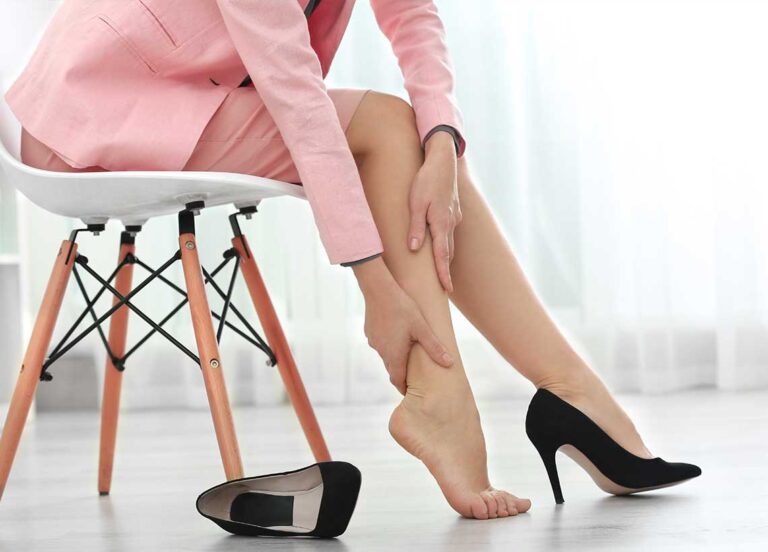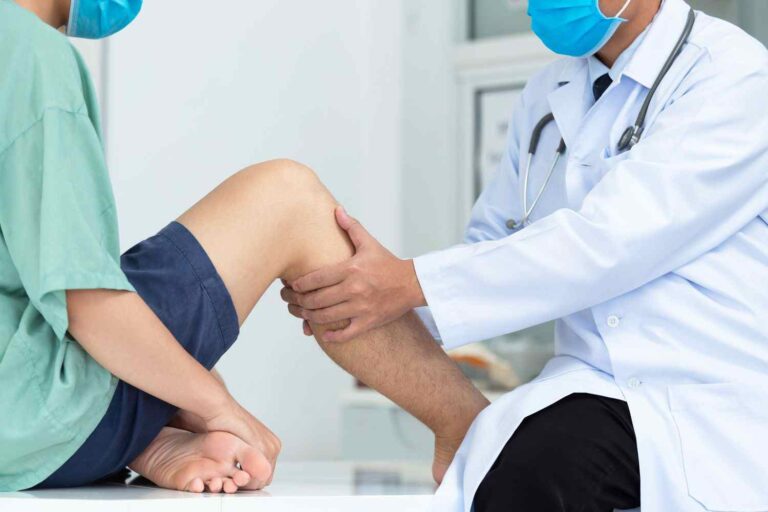Varicose veins are a common condition that can affect anyone, but it is more prevalent in women and people over 50. Varicose veins are typically enlarged, swollen, and twisted veins that occur near the surface of the skin. While they can be unsightly and uncomfortable, they are not always a serious health concern. However, in some cases, varicose veins can lead to complications that require medical attention. Here are 5 complications of varicose veins and what you need to know about them.
1. Ulcers
One of the most severe complications of varicose veins is the formation of ulcers. These sores occur when pressure from the veins leads to skin breakdown and the formation of open wounds. Ulcers commonly appear on the lower leg, and they are often painful and slow to heal. If left untreated, ulcers can cause infection and other complications.
Treatment for varicose ulcers typically involves compression stockings, wound care, and sometimes surgery. The use of compression stockings can improve blood flow and help reduce pressure on the veins. Wound care may include cleaning the affected area, applying ointments, and bandaging. In severe cases, surgery may be necessary to remove damaged tissue and improve circulation.

2. Thrombophlebitis
Thrombophlebitis is a blood clot that forms in a vein near the surface of the skin. This condition can cause pain, redness, and swelling in the affected area. In some circumstances, the clot may separate and move to the lungs, where it may result in a potentially fatal condition called a pulmonary embolism.
Treatment for thrombophlebitis usually involves compression stockings, blood thinners, and sometimes surgery. Compression stockings can help reduce pressure on the veins and improve blood flow. Blood thinners are typically prescribed to prevent the formation of additional clots and reduce the risk of a pulmonary embolism. Surgery can be required in extreme circumstances to remove the clot.
3. Deep vein thrombosis
A blood clot called a deep vein thrombosis (DVT) develops in a deep vein, typically in the leg. DVT can be life-threatening if the clot travels to the lungs and causes a pulmonary embolism. Symptoms of DVT include pain, swelling, and warmth in the affected leg.
Treatment for DVT usually involves blood thinners and sometimes surgery. Blood thinners are used to prevent the formation of additional clots and reduce the risk of pulmonary embolism. Surgery may be necessary in severe cases to remove the clot and improve blood flow.
4. Bleeding
Varicose veins close to the skin’s surface can sometimes burst and cause bleeding. This can happen if the vein is bumped or scratched. While bleeding from varicose veins is usually not severe, it can be difficult to stop.
Treatment for bleeding varicose veins typically involves applying pressure to the area to stop the bleeding. In severe cases, surgery may be necessary to remove the damaged vein and prevent further bleeding.
5. Chronic venous insufficiency
The illness known as chronic venous insufficiency (CVI) is marked by compromised vein valves, which allow blood to flow backward and pool in the legs. This can cause swelling, pain, and skin changes such as discoloration and thickening.
Treatment for CVI usually involves compression stockings, lifestyle changes such as exercise and weight loss, and sometimes surgery. Compression stockings can help improve blood flow and reduce pressure on the veins.
Lifestyle changes such as exercise and weight loss can also improve circulation and reduce the risk of complications. Surgery may be necessary in severe cases to improve blood flow and prevent further vein damage.

In conclusion, varicose veins are a common condition that can lead to complications if left untreated. The five complications mentioned above, including ulcers, thrombophlebitis, deep vein thrombosis, bleeding, and chronic venous insufficiency, can be serious and require medical attention. If you have varicose veins or suspect that you may be at risk for developing them, it’s important to speak with your doctor about prevention and treatment options. By managing your varicose veins and their potential complications, you can reduce your risk of serious health problems and enjoy better overall vascular health.
See a specialist at Specialty Care Clinics as soon as possible to prevent varicose veins from endangering your health. Call (469) 545-9983 to schedule an appointment.
